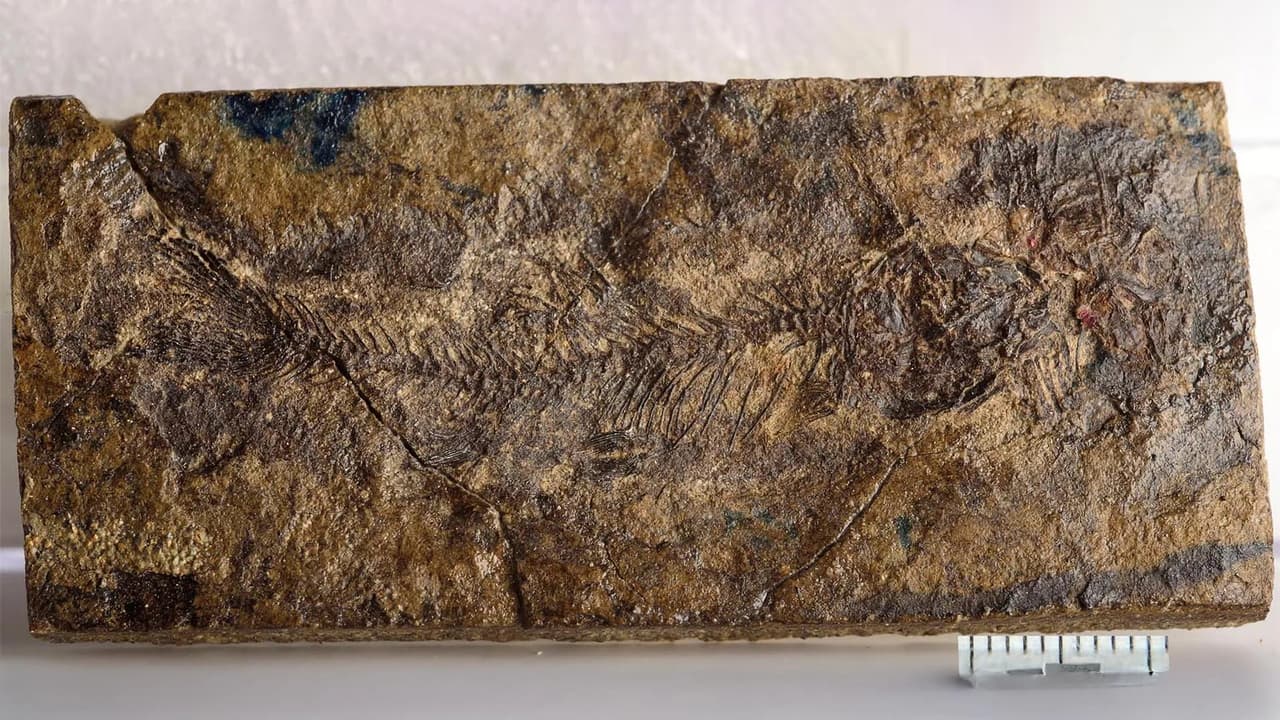A 70-million-year-old fossil fish from Alberta, Acronichthys maccognoi, is the oldest North American otophysan. Its discovery reshapes freshwater evolution, revealing these fish may have transitioned from ocean to rivers multiple times.
A tiny fossil fish discovered in southwestern Alberta is offering new insights into the evolution of freshwater ecosystems. The 70-million-year-old specimen, named Acronichthys maccognoi, is now recognized as the oldest North American member of the otophysan supergroup, which includes modern catfish, carp, and tetras. These fish account for nearly two-thirds of today’s freshwater species. The discovery of Acronichthys maccognoi was published on October 2, 2025, in the journal Science.
A Window into Ancient Fish Evolution
The fossil, measuring just about 4 cm, comes from the Late Cretaceous period—the same era as the Tyrannosaurus Rex. Researchers from Western University, the Royal Tyrrell Museum, and international collaborators studied the skeleton in detail, uncovering early adaptations in the fish’s unique hearing system, which links the swim bladder to the ear for detecting vibrations.
“Acronichthys fills an important gap in the otophysan record, providing data on the origin and early evolution of many freshwater fish living today,” said Neil Banerjee, Earth sciences professor and co-author of the study published in Science.
Advanced Imaging Reveals Hidden Details
To examine the delicate fossil without damaging it, scientists used micro-CT scans at Canadian and U.S. facilities. These high-resolution X-rays produced 3D models, revealing features invisible to the naked eye.
“Many fossils in the Royal Tyrrell Museum are extremely fragile,” explained Lisa Van Loon, adjunct professor at Western. “Micro-CT allows us to study these specimens safely while capturing remarkable internal details.”
From Ocean to Rivers—More Than Once
Otophysans likely began as marine species before transitioning to freshwater. The discovery of Acronichthys suggests this shift happened at least twice, complicating scientists’ understanding of how these fish spread across continents. Researchers estimate the first freshwater transition occurred around 154 million years ago, after Pangea began to break apart.
“This tiny fish is helping us understand how freshwater fish came to dominate rivers and lakes worldwide,” said Don Brinkman of the Royal Tyrrell Museum. “There’s still so much we don’t know about prehistoric freshwater life, and fossils like Acronichthys are the key to unlocking these mysteries.”
